Taking an intersectional approach to understanding mental health and self-identity

Written by Hannah Wilson
Founder and Director of the Belonging Effect (formerly Diverse Educators).
During my time serving as a school leader, I cared deeply about our culture and ethos. We spent a lot of time reflecting on our school values, and how they shaped our inclusive behaviours. As a school we were committed to diversity, equity and inclusion, at the same time as being committed to mental health and wellbeing – both underpinned our strategic vision and our approaches for our curriculum, our staffing, our policies and our practices. This intersectional approach to who we are, how we feel about ourselves and each other, our awareness of our place in the world as global citizens, created our sense of belonging as both individuals and as a community.
I now work independently – I am the Founder of Diverse Educators and I consult, coach and train with these two specialisms in mind. When I am commissioned to do a piece of work with a school, a trust, an educational organisation or training provider for one of these areas, I interweave the other focus back in as I find it hard to speak about one without reflecting on the other. For me this intersect is really important as we often consider mental ill health in isolation from one’s identity, and we need to remember that individuals with a protected characteristic are more vulnerable to experiencing mental health issues, as a result of how authentic and accepted they feel.
Various factors make up a person’s actual identity, including a sense of continuity, a sense of uniqueness from others, and a sense of affiliation based on their membership in various groups like family, ethnicity, and occupation. When we have a positive view of our identity within a group, we are more likely to relate well to other others in that group and feel positive emotions about ourselves. This social identity fulfils the psychological need for esteem from others.
Struggling with various parts of our identity is also natural and normal. It takes time to develop an identity or sense of self and the traits we desire to nurture in ourselves may be challenging. Not having a strong sense of self or struggling with identity issues can lead to anxiety and insecurity. Our sense of self comes from our self-esteem, something I worked on with many of my students over the 19 years I spent teaching and leading in schools. The value we place on ourselves creates a positive self-image which in turn creates our sense of self-worth. When we feel loved by others and by ourselves, we also feel trusted and accepted which boosts our self-esteem. A strong self-identity increases our self-confidence and enables us to assert ourselves and exercise good boundaries with our family, friends, and partner.
Mental health problems affect about 1 in 10 children and young people which can include depression, anxiety and conduct disorders, often as a direct response to what is happening in their lives. But what does the data tell us about children and young people and their race, their gender and their sexual orientation and the intersect with their mental health?
A significant risk factor for a mental health problem manifesting is the experience of race, religion or sexuality. Anyone experiencing a mental health problem should get both support and respect. However, for many people from Black, Asian and Minority Ethnic (BAME) communities this is still not the case. The reasons for this are complex but include systemic racism and discrimination as well as social and economic inequalities and mental health stigma. People from Black, Asian and Minority Ethnic communities living in the UK are more likely to: be diagnosed with mental health problems; be diagnosed and admitted to hospital; experience a poor outcome from treatment. The disproportionate impact of coronavirus on Black, Asian and Minority Ethnic communities has further highlighted the inequalities in the system and has made many people’s mental health worse at an already difficult time. Furthermore, research has found that children of Black, Asian and Ethnic Minority heritage are suffering disproportionate damage to their mental health, as a result of the pandemic than their white peers. There has been a large rise in anxiety, stress and self-harm in non-white under 18s.
Some questions to consider as a school regarding the intersect between race and mental health:
- How engaged are children and young people from black and minority ethnic communities in your mental health and wellbeing activities?
- What are the barriers which put young people from black and minority ethnic groups off from accessing mental health services in your context?
- How culturally sensitive are your mental health processes and services in being appropriate and acceptable to children and young people from diverse families?
Returning to the risk factors, we also need to consider the layers to our identity which are not always visible nor known. Young people establishing their self-identity do not always feel the psychological safety at home and at school to be out but one in every 25 Britons aged 16–24 years old identifies as lesbian, gay, or bisexual. Cross-sectional studies consistently report that sexual-minority young people have poorer mental health profiles than their heterosexual peers, including higher prevalence of self-harm and suicide attempts. The pandemic has exacerbated many existing dangers, and introduced a few new ones, in particular, social isolation may have been especially challenging for LGBTQ youth. They may have been quarantining with rejecting family-members and have lost contact with supportive social networks. The nature of quarantining means that these problems may have been invisible to the school. Even before COVID-19, LGBTQ youth were at higher risk for depression, suicidality, and tobacco, alcohol, and other drug use than their heterosexual peers. Moreover, this increased risk stems from increased rates of rejection, discrimination, and victimisation. During the pandemic, risk was further compounded by loss of relationships in school, clubs, or other community venues where LGBTQ youth find support and affirmation.
Some questions to consider as a school regarding the intersect between sexual orientation and mental health:
- How engaged are children and young people from the LGBTQIA+ community in your mental health and wellbeing activities?
- What are the barriers which put young people from the LGBTQIA+ community off from accessing mental health services in your context?
- How have you made efforts to address gender and sexuality-based inequities so that they might be appropriate and acceptable for children and young people who identify as being LGBTQIA+?
As our schools fully re-open and our support systems are mobilised once again, we need to consider how we can support our marginalised youth groups to rebuild their sense of belonging. Some ways we can do this:
- Recognising that representation matters and that we need to be intentional about the make up of our teams so that there is increased visibility of diverse role models in our schools.
- Reviewing school policies and practices for how inclusive they are in meeting the needs of all our children and young people so that they do not harm nor further alienate individuals with diverse lived experiences.
- Creating safe spaces for young people to explore their self-identity and to surface their lived experiences to be supported and signposted to appropriate interventions.
- Developing resources and peer advocacy programmes that will empower young people to nurture their own resilience whilst at the same time engage them in supporting others.
Which is why Diverse Educators are collaborating with Worth-It CIC on their Wellbeing Ambassadors Programme as we believe that by nurturing peer to peer relationships that we can build trust and increase feelings of belonging and connection for individual young people. The programme coaches them to develop the internal resources and strategies to learn how to develop positive relationships and positive support networks. Come and join us for our free webinars on April 27th to find out more.
Why taking part in School Diversity Week can help LGBT+ young people struggling with mental health
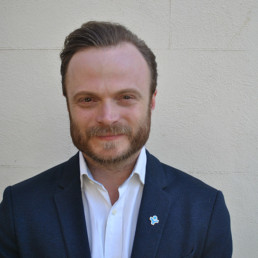
Written by Dominic Arnall
Chief Executive of Just Like Us, the LGBT+ young people's charity.
The pandemic has hit us all hard – whether it’s through job losses, being furloughed, losing loved ones, loneliness or our lives simply turning upside down. However, new independent research by Just Like Us has found that young people who are LGBT+ (lesbian, gay, bisexual or trans) are struggling significantly more.
LGBT+ young people are twice as likely to feel lonely and more than twice as likely to be worrying daily about the state of their mental health.
On top of this, one in four (25%) are facing daily tensions in the place they’re living and seven in 10 (68%) said their mental health has worsened during the pandemic, compared to just half (49%) of young people who aren’t LGBT+.
Sadly, Just Like Us’ independent research found what we suspected to be true when the pandemic began – LGBT+ young people are facing far more challenges than their peers and this is having a devastating impact on their mental health. And we found that LGBT+ young people who are also Black, disabled and/or eligible for free school meals face even worse mental health.
While we’ve all had a tough time not being able to see our loved ones and socialise like we used to, many LGBT+ young people are having to cope with living with families who may not accept or understand them, while also being cut off from their usual support networks or safe spaces where they won’t be judged for who they are.
School, while it may have been virtual for much of the pandemic, can be a fantastic source of support for young people. Sadly, for pupils who are LGBT+, school still often isn’t a place they are able to feel safe, welcome or happy being themselves.
Our research shows that half (48%) of 11 to 18 year olds say they have received little to zero positive messaging at school about being LGBT+ in the last 12 months. One in five (18%) young people say they have received no positive messaging from their school about being LGBT+, which suggests that a significant number of schools are not taking action to meet Ofsted requirements of preventing homophobic, biphobic and transphobic bullying.
It’s a real shame to see that Section 28 is still having such an impact on LGBT+ young people’s experiences of school. As adults, we could be forgiven for thinking that things have moved on – after all, we have far more legislation to protect us these days – but education still has a long way to go in being LGBT+ inclusive.
No child should feel scared to be themselves at school. And pupils in primary schools should know that there’s no shame in having LGBT+ parents or families either. Growing up bisexual, if I’d known and could’ve seen that my school accepted me, my journey would’ve looked very different.
We know that teachers and school staff are doing an incredible job in an overwhelmingly challenging environment. That’s why we are doing everything we can at Just Like Us to make taking the first step to LGBT+ inclusion in education as easy and accessible as possible.
This summer is School Diversity Week. We’re asking all primary schools, secondary schools and colleges to please sign up to take part. It’s free, you’ll get a toolkit of teaching resources for all key stages, across the curriculum, and celebrating means your pupils will know they can be safe, happy and accepted at your school.
We’ll be running free online masterclasses that you can stream, there’ll be Rainbow Friday where pupils can dress up as a colour from the Pride Progress flag, and we have many new resources for staff to inspire your celebrations. LGBT+ young people are facing disproportionate mental health challenges and need to know who they are is not something to be ashamed of – please sign up for School Diversity Week and celebrate with us and thousands of schools and colleges taking part 21-25 June.
Enough is Enough: Tackling Sexism and Sexual Harassment in Schools

Written by Kate Hollinshead
Head of Operations, EqualiTeach
The last few weeks have seen an outpouring of grief, fear, concern and anger after the details of the murder of Sarah Everard have emerged. Feelings have run high in the political sphere, on social media and in schools, with more and more women contributing their experiences of sexism, sexual harassment and violence to the wider call for action against these pernicious and pervasive acts.
In the wake of the Sarah Everard case, the National Education Union have once again called on the government to implement a strategy to tackle sexism in schools, expressing their disappointment at the Department for Education’s action when the NEU’s report into these behaviours was first published in 2017. The report, written in collaboration with UK Feminista, found that almost a quarter of female students at mixed-sex schools had been subjected to unwanted physical touching at school and almost a third of teachers witness sexual harassment in school on at least a weekly basis. The website, Everyone’s Invited, was set up by Soma Sara after her post sharing her experiences of sexual abuse on Instagram caused a huge number of responses from others highlighting similar experiences. In the past few weeks, this website has been inundated with thousands of allegations about sexual harassment at British schools and universities.
At EqualiTeach, we have seen an increase in calls from teachers who are dealing with these conversations in schools, wondering what to say in response and what resources exist to combat sexism and sexual harassment in their classroom. There have been incidents where girls have been upset and angry and boys have been dismissive of the severity of the situation, suggesting that girls are ‘over-reacting’ or that it’s ‘not all men.’ One school has approached us to share that girls have been expressing their upset at the historic behaviour of some of the boys in their class. In another, a year 6 boy has been internally excluded for making comments about rape. Many of the conversations and incidents here are an extension of those happening on social media or in the press, highlighting that young people are consuming news and need help in dissecting the discussions effectively in a safe and open environment.
The suggestion that the incidents women are sharing online are overreactions or the dismissal that sexism and sexual harassment isn’t as big an issue as women think comes from a place of privilege; of a life lead without constant fear of abuse in public spaces or of a lack of understanding that incidents that appear ‘small’ or ‘low level’ are often so regular that they build up into a picture of continual harassment for a woman from a very young age. Someone might only witness sexism or sexual harassment of a woman a couple of times in their life, but the same woman may have many experiences of such behaviour, just not within the same line of sight. What is often missing in the response about women ‘overreacting’ is an understanding of how seemingly low-level incidents feed into a societal acceptance of sexist behaviours and sexual harassment, which, left unchecked, can escalate into the levels of violence against women and girls we experience in the UK. According to a 2021 survey from UN Women UK, 97% of women aged between 18 and 24 said that they had been sexually harassed and 80% of all women of all ages said they had experienced sexual harassment in public spaces.
Such a normalisation of sexism and sexual harassment can disguise the true prevalence of behaviours. Sometimes, experiences may simply go unnoticed by targets as behaviours can be so normalised or the expectation that someone will take a complaint seriously is so low. A colleague of mine has spoken about being inappropriately touched throughout her school life, but only realised that this wasn’t acceptable when she was in her mid-twenties. Speaking about these issues can often educate those experiencing the behaviour that the behaviour isn’t something they should have to tolerate. Those young people in schools who are now speaking up about historic incidents of sexism or sexual harassment perhaps didn’t realise that this was unacceptable behaviour at the time or didn’t see the point in speaking up about it. Either way, these incidents should be dealt with seriously and robustly now. They should be investigated, and education and punitive measures should be administered accordingly. It is important for the school to adopt a robust and consistent approach to challenging sexism and sexual harassment in the same way it would approach challenging any other prejudice or misbehaviour.
Whole school education on sexism and sexual harassment is vital to prevent incidents occurring again. This should be comprehensive and woven not just into the PSHE and citizenship curriculum for each year group, but opportunities should be taken throughout the curriculum; in English, RE, History and beyond to highlight and interrogate stereotypes, sexism and sexual harassment within the taught content. Stand-alone assemblies will not do. Education should focus on what sexism is, how it manifests and what reporting procedures are in place at the school for pupils. It should focus on understanding boundaries between people, consent and how to hold others’ behaviour to account if someone witnesses something unacceptable. It should focus on stamping out sexist jokes or ‘banter’, abolishing name calling and the different expectations between girls and boys with regards to sexual behaviour, and showcasing how to be an ally to women in the fight against these behaviours.
Being an ally is about listening to women’s experiences. All too often the response to women speaking up about such behaviours is that ‘not all men are like that.’ I understand that many men will want to distance themselves from sexist behaviours and sexual harassment, that in itself is a good thing to want to do. However, this is a defensive response which can prevent people from listening. It dismisses women’s reality. Women are aware that not all men are like that but articulating that does nothing to help address the men that are like that. It allows the conversation to be focused only on the ‘few monsters’ out there, those who have committed terrible crimes, without highlighting how smaller acts by lots of men can contribute to women’s unsafety. As Jameela Jamil put it in a recent Twitter thread:
“Do all men work to make sure their fellow men do not harm women? Do they interrupt troubling language and behaviour in others? Do they have conversations about women’s safety/consent with their sons? Are all men interested in our safety? You don’t get to exclude yourself from the wrong side unless you’re actively fighting on the right side.”
But this shouldn’t be a blame game. Men are a product of societal norms and values, just as women are. The focus needs to be on re-educating people away from sexism and sexual harassment and reforming schemes of work in schools to begin discussions from an early age. Not doing so does a disservice to men, women, everyone. Instead, we want to create a society where everyone feels safe, valued and able to succeed.
The following resources may be useful to beginning these conversations with young people:
EqualiTeach Outside the Box Guide for Educators: Promoting Gender Equality and Tackling Sexism and Sexual Harassment in Schools: https://equaliteach.co.uk/for-schools/classroom-resources/outside-the-box/
EqualiTeach Outside the Box Workshops for KS2-5: https://equaliteach.co.uk/education/classroom-resources/outside-the-box/
UK Feminista How to Take a Whole School Approach to Tackling Sexism in Schools https://ukfeminista.org.uk/resources/wsa/
Further Reading
Department for Education (DfE) (2018) Sexual violence and sexual harassment between children in schools and colleges: advice for governing bodies, proprietors, headteachers, principals, senior leadership teams and designated safeguarding leads https://assets.publishing.service.gov.uk/government/uploads/system/uploads/attachment_data/file/719902/Sexual_violence_and_sexual_harassment_between_children_in_schools_and_colleges.pdf
End Violence Against Women https://www.endviolenceagainstwomen.org.uk/about/data-on-violence-against-women-and-girls/#:~:text=%20Data%20on%20violence%20against%20women%20and%20girls,and%20internal%20child%20trafficking.%20The%20vast…%20More%20
Gender Matters. Toward’s Women’s Equality in Scotland https://gendermatters.engender.org.uk/content/education-training/
Girl Guiding (2013) Girls’ Attitudes Survey https://www.girlguiding.org.uk/globalassets/docs-and-resources/research-and-campaigns/girls-attitudes-survey-2013.pdf
Murray, J (2021) The Guardian. Government still has no strategy for tackling sexism in schools, say teachers. https://www.theguardian.com/education/2021/mar/20/government-still-has-no-strategy-for-tackling-sexism-in-schools-say-teachers
NEU and UK Feminista (2017) ‘It’s Just Everywhere! Sexism in Schools’ https://neu.org.uk/advice/its-just-everywhere-sexism-schools
UN Women UK and YouGov (2021) Prevalence and reporting of sexual harassment in UK public spaces https://www.unwomenuk.org/site/wp-content/uploads/2021/03/APPG-UN-Women-Sexual-Harassment-Report_Updated.pdf
Women and Equalities Committee Report (2016) Sexual Harassment and Violence in Schools: https://publications.parliament.uk/pa/cm201617/cmselect/cmwomeq/91/91.pdf
Education to End Violence Against Women and Girls
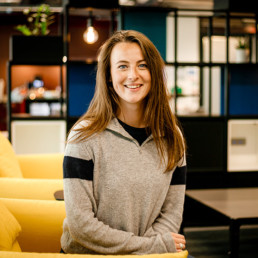
Written by Natasha Eeles
Natasha is the Founder of Bold Voices. She is a passionate advocate for the rights of women and marginalised genders.
The world young people are growing up in today is changing rapidly, bringing with it a need to think more broadly about the education young people require. In the past week the UK has had its eyes opened to the urgent need to challenge the seemingly harmless attitudes towards women and girls that contribute to a culture within which gender based violence is normalised and even accepted, a culture that unfortunately schools are not exempt from.
On Wednesday 3rd March Sarah Everad went missing while walking home in Clapham, south London. She had taken a well-lit, public route, she had called her boyfriend to let him know when she’d be home, she was wearing bright clothes and trainers. She followed all the unspoken ‘rules’ that women and girls follow to keep themselves safe, but it wasn’t enough. Since that day, Sarah’s kidnap and murder has sparked an outpouring of grief and exhaustion from women and marginalised genders across the country who are tired of being harassed, objectified and assaulted with little to no accountability for the perpetrators. The media coverage of Sarah Everad’s case coincided with the release of a UN Women UK report finding that 97% of young women aged 18-24 have experienced sexual harassment.
Unlike the #MeToo movement of 2017, the moment of the past week has not left young people behind. The Instagram account Everyone’s Invited has gained unprecedented traction, with thousands of school pupils and university students submitting their testimonies of harassment, abuse, assault and speaking to the rape culture that pervades within our educational institutions. As teachers and parents it can be difficult to know what to do in the wake of such a horrific outpouring from young people, how to keep them safe. But if this last week has taught us anything, it’s that to bring up a new generation who do not continue to perpetuate a culture of violence against women and girls is a number one priority.
HOW DO WE DO THIS?
THE ANSWER: EDUCATION.
Keeping our young people safe and healthy means ensuring they have the right spaces for learning about and discussing these issues. We appreciate that terms such as ‘gender based’ or ‘sexual’ violence can be challenging and daunting, or even extreme, particularly when it comes to discussions about pupils. But, as this past week has shown, young people are not protected from this violence and so we must ensure we move towards a preventative as opposed to reactionary approach.
At Bold Voices we’ve been delivering education on gender inequality and gender based violence to young people in schools and universities for three years. We’ve worked with over 2000 people through talks and workshops. We are a youth-led team who identify closely with the experiences young people face and understand the many influences that shape their beliefs and outlook on the world. Our education is designed to empower young people, both boys and girls, to see themselves as agents of change. We do this by approaching topics that are often uncomfortable and emotive with an objective, critical lens. In particular, our education focuses on challenging key attitudes and beliefs such as the perpetuation of gender stereotypes, dismissal of casual sexism as harmless and use of language that degrades and objectifies women.
This education is not a ‘nice-to-have’ addition to the curriculum. It is urgent, critical education required to keep young people safe and to disrupt the patterns of harassment, abuse and violence that have pervaded the lives of women and girls for centuries. Bold Voices are here to support you in becoming better equipped to have these conversations with your pupils, your children, and other educators and parents. As experts in delivering this critical education we have all the knowledge and expertise you need – resources, talks, workshops and a community where young people themselves can learn from each other and find support from others on this journey.
HOW CAN WE HELP?
Resources: Activities for the classroom, toolkits, blog posts and lesson plans for discussing gender inequality and gender based violence. Sign up to be the first to hear about new resources we create through our newsletter.
Talks and Workshops: Discover our talks and workshops, led by experienced facilitators and delivering on key topics relating to gender inequality and gender based violence including:
- Thinking Big About Gender Inequality: From Misogyny to Gendered Violence
- Preparing Our Teens for the Unspoken at University: Cultures of Gendered Violence within UK Universities
- Online Sexual Harassment: How Gendered Violence Adapts to New Environments
Delivering Gendered Violence Education: Sign up for early access to our self-paced online course for teachers supporting you to deliver this critical education.
Doing the Inner Work, to do the Outer Work

Written by Ellie Lister
Ellie leads the Big Leadership Adventure programme at Big Education. A multi-academy trust and social enterprise whose mission is to rethink and reshape education.
We have spent the weekend working with our 2020 Big Leadership Adventure group. It is always an energising and uplifting experience – as we learn together as part of their journey as leaders who believe in a ‘big’ education that can change the system. The commitment, passion and dedication of this group of 30 leaders can not be overstated. We salute you all!
The overall theme of the two days was Design Thinking – how can we re-imagine practices by using a range of tools which get us to understand problems differently and then go about solving them in new ways? Inspired by the work of Ideo, this powerful methodology has much to offer us in the sector.
As pupils return from lockdown, many more schools are looking to do things differently. Our leaders are all working on Innovation Projects that harness the learnings from lockdown, to help us to rethink and reshape education.
We know that we cannot achieve ‘a big education’ unless our system values and embodies diversity, equity and inclusion. Having some of the sector-leading experts and trainers as part of the cohort gave an incredible opportunity to draw on their expertise and really explore how this is explicitly linked to our work on the programme. We explored the themes of user-centred design, really actually listening to what those with protected characteristics are saying, and creating the spaces where those conversations can happen.
Adrian McLean and Hannah Wilson skillfully created a safe space for participants to learn, challenge and understand. It was so powerful to start with checking our knowledge of the equalities act – what are the 9 protected characteristics and how many can you name? Between the group we got there – but I for one would not have managed to get all 9 on my own.
We were challenged to think about which of these are visible in our organisations. Where are there explicit practices in our organisation in supporting or addressing these protected characteristics? It was clear that for so many of us, there is not an equal balance of focus on each of those within our organisations. There were some fascinating reflections on the ‘emotional tax’ associated with some of the invisible characteristics, for example disabilities that are non visible. Some areas of practice are much stronger than others, and it was powerful and, at times, very uncomfortable to delve into why this is the case. It was also fascinating to reflect on the difference between what is written in policies and what is actually happening which again can expose some uncomfortable truths. Adrian and Hanah recognised this and urged us to “get comfortable with being uncomfortable.” These reflections and conversations need to happen.
A large focus was on encouraging us to look inwards first. “Doing the inner work, to do the outer work.” This means we need to look personally inwards and consider our own perspectives, privilege and biases before we can meaningfully bring that conversation into our wider organisations. We used the Wheel of Power and Privilege as a tool to consider our own identity and experience and as a way to consider what might be going on for others.
We made an interesting link with our concept of ‘making entry’ – the idea that an essential prerequisite of meaningful work together in a trusting relationship, and that this is achieved only through self disclosure and sharing information about ourselves. It raises many questions about what we choose to disclose – how much, about what and to whom. What is clear is that if we do not tell our own story, others will make one up for us. Some of that story is based on what they can see – the visible characteristics – and some about assumptions they make. Whether we choose to inform them further is our choice.
What is also clear, however, is how powerful it is when people are open about aspects of themselves. We heard stories of the impact of staff sharing their sexual orientation with students and the transformation in attitudes this can enable, as well as safe spaces where students were empowered to be openly vulnerable and really challenge a culture of toxic masculinity.
The group all made pledges for actions to undertake and we will hold ourselves accountable for these commitments.
Day 2 shifted us into some practical action in developing our leadership skills – what we call developing ourselves as a ‘leadership artefact’. We passionately believe that being able to clearly and effectively deliver a ‘stump’ speech is a tool in the changemaker’s tool kit. The ability to convince others, create a compelling narrative and inspire action is essential. Our leaders revisited their stump speech they had delivered as part of the application process, redrafted it in light of the philosophy of education module they have completed, and delivered it to colleagues in small groups.
It was an incredible experience, for both those speaking and those listening and feeding back. Drawing on the 4 oracy strands as a framework for listening and observing, each leader then received detailed feedback about the impact their speech had had on others in the group. We were all reminded again of the power of feedback – such an important part of developing our self awareness and understanding the effect our behaviour has on others. We referenced the ever useful Johari’s window model as a framework where we consider what is known and unknown to self and others.
The energy, commitment and positivity from this group of school leaders, after the first week back at school, was quite a joy to experience. The power of the cohort and drawing on expertise and support from the group could not have been stronger. It is a pleasure to work with this group of leaders and the future feels a little brighter in their presence.
Are you passionate about the need for a holistic education for young people? Applications are open for the Big Leadership Adventure – closing at midnight on the 3rd of May: https://bigeducation.org/bla/
Voice Led Early Intervention for Student Wellbeing and Belonging
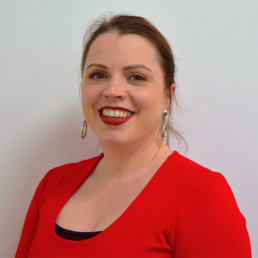
Written by Liz Robson-Kelly
Educator, Positive and Organisational Psychologist, leading expert on Positive Education in the UK.
My research and extensive work for the last 10 years has focused on increasing capacity to prevent young people develop long lasting mental health problems. Listening to and understanding young people themselves, what they want, and need is the key to providing effective early intervention and mental health problem prevention.
The whole ethos of Worth-it Positive Education CIC as an organisation has been founded on co-produced insights and ideas from the young people we work with and support. This passion for empowering young people to have a voice has led me to publish grounded theory research on how coaching and positive psychology approaches can help young people prevent the onset of common mental health problems. Through this research and our work with young people, time and time again they have said that being sharing their stresses and concerns with another young person ‘like them’ and who understands them, and their situation is essential to the way they want to access support. That knowing that there is another young person who can share their ‘experience’ and ‘helpful information’, supports them to improve their mental health and wellbeing.
Looking beyond the experiences of individual young people and focusing on the wider school environment, school connectedness, belonging and positive peer relationships have also been demonstrated to be essential for the prevention of mental health problems in young people. Students are more likely to engage in healthy behaviours and succeed academically when they feel connected to a school and have positive peer relationships. Experiencing positive peer relationships and a sense of belonging at school makes a major contribution to young people’s ability to increase their own wellbeing resources. This then enables them to deal with challenging situations, stress, or pressure and reduce the onset of mental health problems. Empowering students to lead projects and interventions that support the development of belonging and positive relationships fosters wellbeing and is integral to supporting a whole school approach to mental health.
To prevent mental health problems, it is essential we support young people to develop and use their own personal resources for wellbeing. This includes enabling them to identify and access support networks provided by peers or the school environment. This ability to nurture wellbeing resources and increase access support networks is something that can be shared peer to peer. Young people are often more likely to listen to a peer about what helps them increase their own wellbeing than any well-meaning adult.
Combining the importance of offering early prevention and supporting young people develop and share resources for wellbeing, led us to develop our Wellbeing Ambassadors programme. This programme is based on peer-to-peer coaching and positive psychology research. Through testing our approach, gaining feedback from young people, schools and organisations including, CAMHS and local authorities. We designed and shaped an intervention that empowers young people develop their own internal resources for wellbeing and then share them with peers and lead initiatives that support wellbeing to be developed across the school environment. The Wellbeing Ambassadors Programme builds and nurture on positive peer relationships that support the development of belonging and connection at school.
The Wellbeing Ambassadors programme trains young people coaching skills and supports them to become an empowered team of peer wellbeing leaders. They then decide and implement their own wellbeing initiatives that will support their peers to feel included, develop positive relationships and strategies for wellbeing in their own schools. Nurturing peer to peer relationships builds trust and can increase feelings of belonging and connection. This can have a significant impact on supporting the school to become inclusive and built on a foundation of belonging and positive relationships that promote and protect wellbeing.
Young people more than anything need to belong and need strategies to learn how to develop positive relationships, and into positive support networks is more important now than ever. Not only to reduce the negative impact to mental health caused by the lockdowns but to support all young people enjoy and flourish at school.
Find out more
We are pleased to be working collaboratively with Hannah Wilson and Diverse Educators who is championing and sharing her passion for supporting pupil belonging, inclusion and wellbeing. We have come together to share our insights into our Why Have Student Wellbeing Ambassadors? – Webinar.
To find out more about how a Wellbeing Ambassador Programme, can help you support student mental health and wellbeing join our Live 1 hour Webinar on the 27th April 2021 at 11am or 4pm.
Next Steps
To find out more and book your place on the ‘Why Have Student Wellbeing Ambassadors’- Webinar follow this link
https://worthit.org.uk/why-student-wellbeing-ambassadors-webinar/
For more about my work at Worth-it click here.
You’re Not Just Marrying the Person…
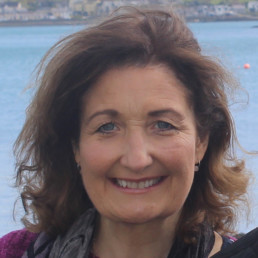
Written by Jackie Hill
An experienced teacher trainer, Jackie is a Founding Fellow of the Chartered College, Network Leader for WomenEdNW and Co-Founder / Strategic Leader for WomenEdNI.
“You’re not just marrying the person, you’re marrying the family and, in this case, an institution” – striking words spoken by Oprah Winfrey to Meghan, Duchess of Sussex in her recent interview. For many couples listening they may well have resonated with them too, in relation to their own particular context and relationship.
As the editor of the chapter on Marriage and Civil Partnerships in the forthcoming book “Diverse Educators: The Manifesto”, I was particularly struck by those words as they appear, in a deceptively neat and brief sentence, to sum up so many of the issues and influences that impact not just on Harry and Meghan, but indeed on many couples when they decide to formalise their relationship. Not many will marry into an “institution” but change that to family business or different culture and you’ll see what I mean.
Of course, for anyone it’s rarely a case of “just marrying the person” and the underlying story is almost always much more complex than what can appear on the surface so, for this chapter, we’re gathering a really broad range of experiences, stories, insights and views about marriage, civil partnerships and, by extension, families – which, of course, come in a wonderful variety of shapes and sizes.
We’ve already got a team of fantastic writers on the case, each working on their contributions and, between them, covering a wide range of issues.
However, in order to fully capture the collective voice of our community, I would still like to get some additional perspectives, particularly (though not exclusively) views from more men across a range of contexts. I’m looking for just a sentence or two expressing a view, or giving an insight from experience.
I’d also be interested to gather perspectives from anyone on divorce, re-marriage and blended families.
So many factors can impact on whether and how a couple may decide to formalise their relationship and for many, their religious beliefs play a large part in this, but can also complicate things when not shared. I’d also be keen to hear from anyone who would like to share any insights and/or experiences relating to this.
The diverse lived experiences of educators are essential elements for The Manifesto in order to produce a solutions focused resource in relation to all the Protected Characteristics – one which will impact on practice, pedagogy, people management and policy in schools and education settings.
It’s understandable that some people may not be comfortable to talk about their experiences in relation to Marriage and/or Civil Partnerships but any insights that are shared will be valued and will help to ensure the collective voice of the community in this chapter is as representative, diverse and relevant as possible (and comments can be anonymised).
If you do have something you’d like to say in relation to Marriage and/or Civil Partnerships, I’d love to hear from you so please DM me (@hill1_jac) or email your comments to hilljac@yahoo.co.uk
The Fallout of ‘That’ Interview
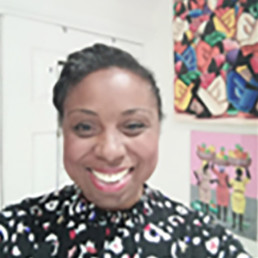
Written by Rachel Clarke
Working with many leaders to improve schools, Rachel is a "passionate, dedicated and inspirational educator, who strives for success with students and educators".
Meghan and Harry’s ‘bombshell’ interview was one that has re-ignited the conversation about racism in Britain; our thoughts about it, our experiences of it and more revealingly, the opinions of those who we call friends as well as those who are in the public sphere.
For me, there were no surprises aired.
That there could be racism in close proximity, or within the institution of the Royal Family, was not a shock. The institution is one that has been predicated upon ideals of ‘god-given’ superiority and has carried out atrocities in the name of Empire and Imperialism. A family member being ‘concerned’ about the skin tone of Meghan and Harry’s baby, again isn’t surprising.
I think the real surprise and revealing element is in the conversation that appears to be widespread on television programmes and social media. The seemingly comfortable way in which people speak to justify, make excuses for and explain away the ‘casual racism’ espoused, through “well doesn’t it depend on how it was said?”, or “we all have people from an older generation who say the wrong thing”, is evidence enough that we as Britons in Britain haven’t spoken about race, or racism enough.
As a Black female, I find the conversations exhausting. Feeling as if I have to justify and prove my experiences doesn’t support me to feel a sense of belonging. Seeing and hearing other Black and Minority Brits do the same thing, further cements the lack of trust I feel and the feeling of ‘otherness’ that is becoming more not less familiar.
Yes everyone is entitled to their opinion. Yes progress in terms of race relations has been made. Yes I often have pride in the country I have been born in and have generational links with that spans hundreds of years. But enough is enough. I am tired. We are tired. Conversation needs to take place where voices of Black and minorities are listened to, not just tolerated. Real commitment to achieving racial justice has to be made if we are to truly live harmoniously. This doesn’t mean challenging conversations can’t and shouldn’t be had but rather, progress has to be made as a result.
An African Teacher’s Experience of a British Classroom
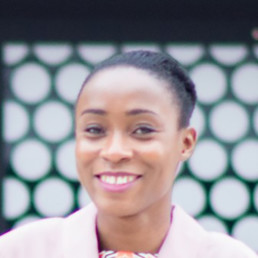
Written by Chinwe Njoku
Qualified teaching professional with a background in Engineering. I have written three books related to the education space (Good Morning Year 11, Raising an ‘A’ Student and From Diapers to Doctorate Dollar-Free).
Try teaching as an African teacher in a non-African country to a mix of students from various backgrounds as different as the colours of a chameleon! This is true hard work! All your paradigms of how children should (not) behave are upended and challenged. Sometimes completely obliterated, you wonder why you lived by those beliefs in the first place. Either culture clash or languages blended.
For example, a student from one of the most popular Asian countries that can also be ‘black’, joins in about halfway through the year and it soon became clear that she and her family must have recently migrated to the UK.
Because, at the start of the next lesson, she walked over to my desk where I was sat and greeted me, “Good morning, Teacher”.
I did not know how to respond as it took me by surprise. Without making eye contact, I just said, “You don’t need to greet me like that every lesson”. I felt embarrassed. Thank God I’m brown skinned or I would have turned red.
Next lesson, I made sure I was at the door welcoming students in to avoid the intense attention of being called Teacher, which I am but dang, just call me “Miss” or “Dr Njoku” like the others.
Second example. A fellow African student was revising after school for her upcoming exams in my classroom, with her friends. But they were chatting quite a bit with this girl being the loudest, most animated and more loquacious of all.
I called her by her last name with the tone of, you need to stop talking and getting on work, or you shall hear from me in a not so fun way! And child, your parents would not be happy either!
Calling children by their last names or first and last names is an African thing. To remind the child of whose they were, and not to bring disgrace to their ancestors and everyone on their family tree?
In response to hearing her last name, she said “Yes, Ma!” And this was not the first time African students have responded to me this way. I have even had, “Yes, Aunty!”, “Yes, mummy!”
Her friends responded with audible arghs, expecting me to caution her against saying that. She quickly caught herself, recanting that she was just used to saying it. I simply raised my eyebrows, shook my head and carried on doing what teachers do after school.
Her default response which caught her off guard, got her to be quiet, but only for a while as nature sometimes trumps nurture.
Last example. One Maths topic I teach KS3 students is Introduction to Data, including the different classifications of data that there are. Data can be classified as either Continuous or Discrete, or as Qualitative or Quantitative. To help students distinguish between the later, I typically go through different contextual examples getting them to decide which class the data type belonged to.
Now because Qualitative and Quantitative sound alike, it was difficult to know which one was being said as an answer. I tried enunciating it for my students so that they could emphasize the ‘li’ and ‘nti’. But try as I may, it seemed not to be working.
Ideally, they would each have mini whiteboards so that they could just show me their answers, saving me the tongue twisting/biting! But not this time for some reason.
Eventually, my tongue could take it no more. Repeatedly asking them to repeat themselves and make a clearer distinction in their pronunciation, I blurted out, “Qua-gini?”
Gini, in my native tongue, Igbo, means ‘what’. By the time I realised I had spoken a different language in an English-based Maths lesson in a British school, it was too late. I could not take back my words.
My students who looked at me confused. But since no one else knew what just happened, I kept a poker face, swiftly correcting it to, “Qua-what?”
All was calm. Teaching and learning resumed. Except in my mind, of course, as I tried not to laugh at my blunder.
Then it happened again in a different lesson. I was in the throes of solving one question after the other on the board and taking requests from the audience – my Year 11 students. Then, someone called out, “Question 36, Miss!”
To gain time to figure out the solution to the problem, I responded as I walked to the board, “Thirty-gini?”
From the eyes at the back of my head that all teachers have, I could ‘see’ the two students who had Igbo heritage chuckling to themselves in mutual knowing of what they just heard.
Somebody, help!
As Educators, What Do We Owe to Our Children?
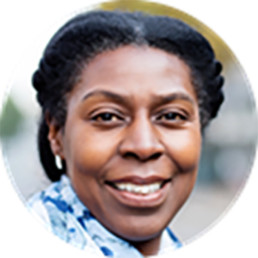
Written by Rosie Peters
Rosie Peters has been in education for over 20 years and is currently working as a Co-Head of School. She is passionate about improving children’s life chances and strongly believes in the power of mentoring and representation.
As educators, what do we owe to our children? Surely it should be an education where each and every child feels represented within the education system and the curriculum.
An early-years setting that says welcome, I hear you and I see you, instantly communicates to the child that they belong. In turn the child recognises and sees familiarity within the physical environment, the faces they encounter, the words that they hear.
For a child that has little English, a simple hello in their first language can make a world of difference. Books opened and read aloud, bridge reality with the imaginary with ease because someone has taken the time to check there is true representation of the children entrusted to them as they embark on what should be a wonderful adventure of education, full of excitement and discovery.
We want all our young people, regardless of colour, class religion, gender or ability to experience a shaping of belonging and identity that is positive, clear and authentic. We are responsible for shaping their views and attitudes of self and others.
Pupils should be made aware of the true contributions made by their ancestors and the ancestors of their diverse peers.
Starting with a Primary History curriculum that gives the full story by bringing back the erased and forgotten: the Aurelian Moors who were Roman soldiers based in Britain; the Ivory Bangled Lady; Septimius Severus a Roman Emperor. ‘We can be certain that people from Africa lived here more than 1,700 years ago.’ (Black and British, a Short Essential History; David Olusoga 2020.)
In history wonderful websites such as ‘Another History is Possible’ or ‘Meanwhile Elsewhere’, gives insight to other equally important global events that took place at the same time as the eras covered in the national curriculum.
A curriculum that allows different perspectives to be taught – from the point of view of, for example, race, gender, class, religion, disability and age, would give a strong message that diversity is not only accepted but essential.
A curriculum that develops and champions critical thinkers who are able to question, to ask why, is essential. Why, for example, during the VE Day celebrations in the summer of 2020 Black and Asians soldiers were barely mentioned. Why, in certain professions, there is little or no representation from non-white communities.
Let’s empower young people by ensuring that the curriculum and experiences they encounter are reflected through the role models we choose, the places we focus on and the cultural connections we celebrate. There is no subject in which diversity and inclusion cannot be embedded and made the norm. With a bit of time and effort it is amazing what can be achieved.
Educators need to be supported and provided with CPD to enable them to become ‘racially literate’ and able to talk openly about racism; in other, words not shy away from uncomfortable discussions. They need to be aware that terminology is forever changing and that it is better to ask someone what they prefer to be called: Black, Black British, Black Caribbean, Roma or Romani … rather than avoid it.
Teachers that go all out to make sure that someone’s name is pronounced correctly show children that their name is important; it is part of their history and culture. ‘It is not the first mispronunciation that stays with the student, it is the failure to learn how the name is pronounced and then the continued incorrect pronunciation on the second, third, fourth attempt. The unfortunate consequence, witnessed first-hand, is that students with names from different backgrounds start to hide their names. Their pride in their own heritage is eroded. (Diversity in School, Bennie Kara 2021)
We all have the responsibility to engineer change. Lack of knowledge of different people causes a lack of trust, fear, conflict and animosity. Educators need to be instrumental in changing society in a meaningful way.
The pandemic has highlighted the inequalities that exist in our society and the mistrust that some communities have in our institutions such as the justice system, the police and the medical profession. This is built on decades of negative experiences and unfair treatment endured by marginalised communities. One only has to look at key data sighted in the Office of National Statistics 2017/18:
- Fifty-five percent of Black Caribbean pupils achieved the expected standard in reading, writing & maths (The lowest percentage out of all ethnic groups after White Irish Traveller and Gypsy Roma pupils.)
- Three times more likely to be permanently excluded than their white peers.
- Forty-five percent of Black Caribbean live in rented social housing, compared with 16% White British (2016/17)
- Black Caribbean women are five times more likely to die in childbirth than their British counterparts.
This lack of trust can have a devastating impact on minority groups. A prime example can be seen in the low rate of uptake for the COVID-19 vaccine amongst the Black and Asian communities. This surely has to change.
We need to come together and work for the common good. It should not be the responsibility of one community, usually the community being most affected. It has to be the responsibility of everyone; the majority: white allies, working alongside the minority.
Wouldn’t it be wonderful to produce children who have a full sense of belonging; knowing where they have come from and where they are going and, in equal measure, hold the same knowledge of their diverse peers.
Imagine if this were the reality, there would be less racism, prejudice, unconscious bias and the inequalities we see today.
Agency would be for all and not the chosen.
The decision makers of tomorrow would mirror the richness of society’s diversity and therefore decisions on a local and global scale would recognise and address inequality and bring equity where required.
Some educators have already started this journey; a journey we should all embrace in order to bring into being a more equal society for our children, the leaders of tomorrow.
The green shoots of change can already be seen. Let’s hope they fully blossom.
Teaching is a great profession especially when we recognise that education is a powerful vehicle for creating better human beings.
